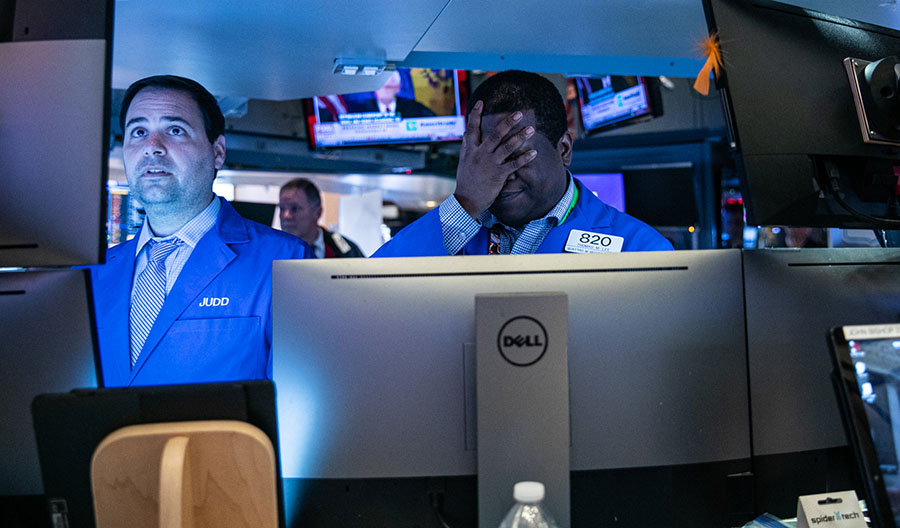No doubt, Coronavirus has eaten deep into the fabrics of China and the rest of the world. No wonder, the Bank of America declared that the world is facing a Coronavirus induced recession.
Between December, when the killer disease started, and now, the global equity market alone has lost $24 trillion in value, more than the $22 trillion in United States GDP, as reported by the Bank of America in its research journal.
Over the last century, recessions have almost always been started by sustained periods of high-interest rates but never a virus.

The damage such contagions inflicted on the world economy has typically lasted for more than three months and still counting. Now, this once-in-a-century pandemic is hitting financial markets like never before.
In barely a number of weeks, the coronavirus pandemic has shaved off nearly a third of the global market capitalization of global equities markets. The spread of the virus has triggered panic across the world and shaken the confidence of investors.
[READ MORE: Global Markets: U.S Fed delivers another rate cut)
Making matters worse is the oil price war between Saudi Arabia and Russia, which has injected uncertainty into other assets. Earlier, only the global stock and debt markets were impacted by the Coronavirus scare; now, the commodities and money markets are in disarray due to the crude oil war.
Olanrewaju Durojaiye, a financial advisor for a leading Canadian bank, said: “The effect of the COVID 19 on the financial market is devastating, considering that a chunk of the world’s production is located in China.
“This would have been better managed for financial markets if we didn’t have the oil price issue between Saudi and Russia.”
The Organization for Economic Cooperation and Development estimates that the coronavirus outbreak could cut global economic growth in half, or worse.
While conditions are improving in China lately, the Coronavirus outbreak is leading to lockdowns in the Western world and Iran. Due to spiralling numbers, the US and many countries in Europe are staring at a grim situation.
Temitope Busari (CFA), a treasurer in a leading financial firm based in Lagos, during a phone interview with Nairametrics, said, “The outbreak affected demand and supply of commodities and production input, disrupted supply chains, led to travel bans and enhanced social distancing with more people working from home.
“The ensuing uncertainties engendered a strong bear market in financial markets around the world, especially as many multinationals began to review their financial projections downward. Following a breakthrough in medical research, the degree of economic recovery of sovereign states and multinationals will vary. It will take strong leadership and innovation to master disaster recovery efforts in the coming months.
“This pandemic will definitely lead to a slowdown in the global economy, with bigger numbers of contractions expected in emerging market economies as foreign portfolio investors continue to exit to safety. Additionally, what I believe to be more worrisome is the potential catastrophic impact of COVID-19 on the Healthcare system and health workers in Nigeria.”
[READ ALSO: Week the bears took control of the world’s financial Markets)
Miss Urenna Ukonne, an intelligence analyst for Taxide, also added on a phone chat with Nairametrics, “COVID-19 has dealt a hard blow on the global economy. The virus that has spread to about 100 countries has led to businesses shutting down, retail stores closing, restaurants and the like following suit, leading to a shortage of sales. Sporting activities have also been brought to a halt.
“Countries that thrive on exports to other nations for their revenues, have stopped until the coast is clear due to the COVID-19 pandemic and the global decline in demand, and the fact that countries have closed their borders. Recession comes knocking for some countries. Also, we’ve seen countries such as US, UK, Nigeria spending more on health care to tackle the pandemic.”
Elsewhere in Africa, it has disrupted trade, increased debt vulnerabilities and limited the scope for monetary policy manoeuvres.
However, the issue for central banks around the world is stopping the massive panic showing in the global equities market at unprecedented levels.

Lately, the Fed showed how central banks can go big. But interest rate cuts are of limited use; they won’t tempt consumers to go out and spend in Paris, Lagos or Shanghai when the bars are closed, and flights cancelled.
But the market’s reaction and its evaluation of the economic impact of the virus wiping out several trillion dollars of value in global financial markets suggest what is certain to anyone outside of the investing world: you can’t cure a virus with monetary policy as quantitative easing.
Investors are looking to governments for more targeted moral support and bailout packages. But even that has not calmed nerves altogether.
Victor Silas, an investment analyst, told Nairametrics, “The effect of coronavirus in the global financial market cannot be overemphasized. In the commodity market, crude oil prices have fallen drastically due to low demand from China, which is a large consumer of the commodity.
“Potential disruption to China’s economy and factories would be significant as the country’s potential share of the world economy has risen to 19.3% in 2019 from 8.7% share during the 2002-2003 SARS outbreak, according to data from IMF.”
[READ FURTHER: Nigeria could slide into recession due to Coronavirus, PEAC warns)
Meanwhile, the global economy is expected to grow by 2.4% in 2020 down from the 2.9% projected earlier, said a report by OECD.
However, what can really calm the financial markets are signs showing that the virus caseload has peaked, and then that there is an encouraging economic outlook spurred by a surge in demand in financial assets across the world.











